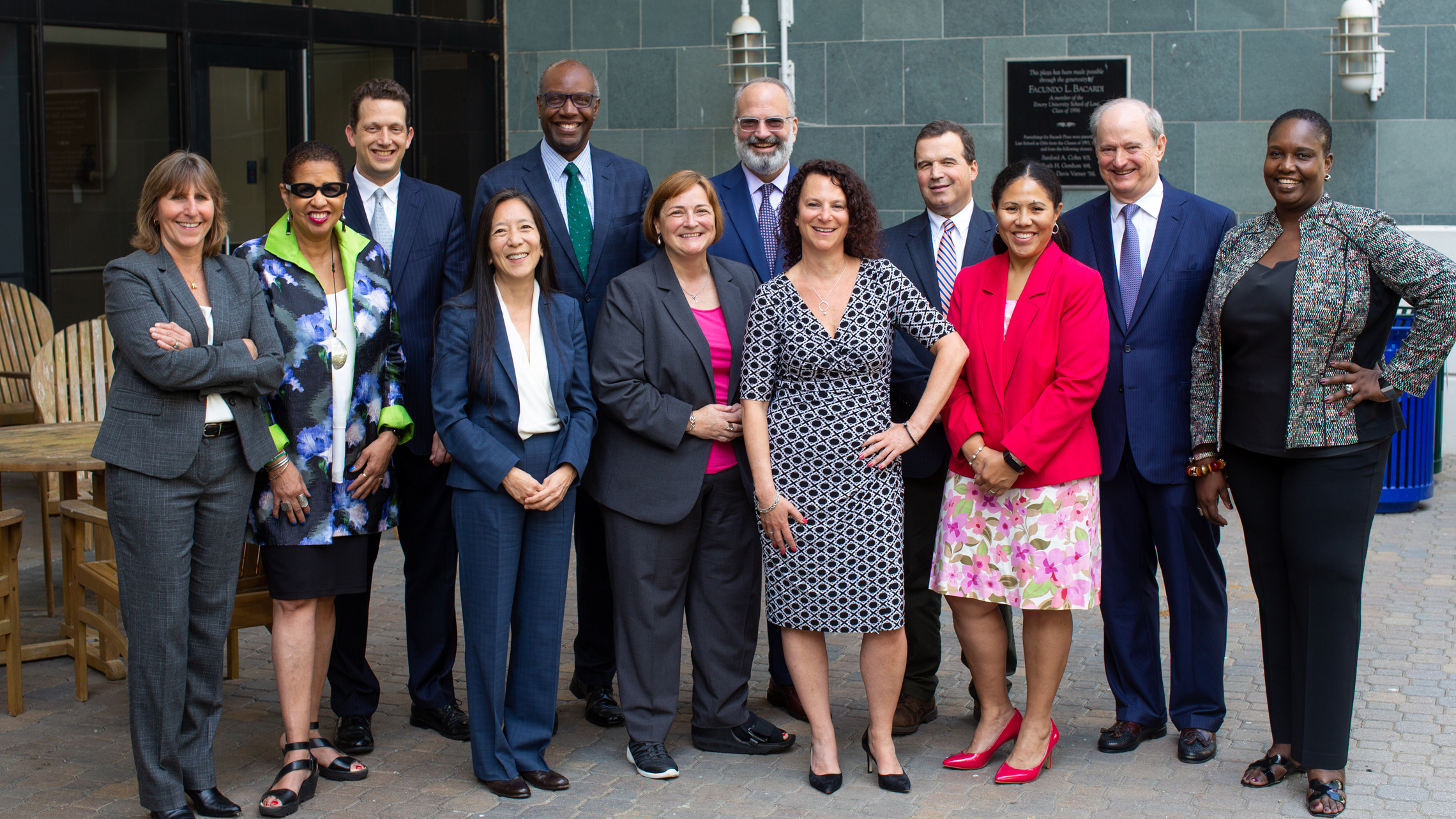Modeled after the National Institute for Trial Advocacy's program for teaching practicing lawyers, Emory Law's program is the largest in the country and is recognized as one of the nation's finest.

The Kessler-Eidson Program for Trial Techniques, founded in 1982, is an important part of the Emory Law curriculum. As a mandatory course for our students, it includes a series of spring workshops and a one-week intensive program in May, which culminates in a simulated jury trial. The largest trial advocacy program in the country, it has been awarded the Emil Gumpert Award for excellence in the teaching of trial advocacy by the American College of Trial Lawyers. The program integrates second-year students’ knowledge of substantive evidence law with practical skills in a “learning-by-doing” format, all under the watchful eye of renowned trial lawyers, judges, and trial skills teachers who travel in from all over the country to teach Emory’s students.
Students develop theories for particular witness examinations, decide on appropriate approaches to bring out the facts consistent with their theories, prepare witnesses, and conduct direct and cross-examinations using current courtroom technology in the use of exhibits.
The Kessler-Eidson Program for Trial Techniques is an experiential approach to developing oral advocacy skills. Modeled after the National Institute for Trial Advocacy's program for teaching practicing lawyers, Emory Law's program is recognized as one of the nation's finest. The American College of Trial Lawyers has twice conferred on Emory's program the Emil Gumpert Award for excellence in the teaching of trial advocacy. The program's teaching methodology focuses on integrating the second-year law student's knowledge of substantive evidence with practical trial skills through a "learn-by-doing" format.Kessler-Eidson Program for Trial Techniques
Program
- Spring Semester: Friday afternoon preparatory workshops at downtown Atlanta law firms and public law offices. Students work closely with experienced trial lawyers in groups as small as six to eight students per trial instructor.
- May Session: Emory Law hosts 80 nationally known trial lawyers, judges, and trial teachers who bring their different styles and regional perspectives to aid in students’ growth and development as advocates, resulting in an 8 to 1 student/trial instructor ratio. The May session includes seven days of intensive workshops on trial techniques, during which each student will try a bench and jury trial.
Goals
- Integrate case analysis and relevance to provide improved understanding of each and their critical relationship to one another.
- Teach hearsay and character evidence concepts in the context of direct and cross-examination.
- Provide practice at building evidentiary foundations, authenticating exhibits, and making and refuting objections to better understand the Federal Rules of Evidence on original writings, authentication, relevance, and hearsay and to help bring about better chain of custody foundations.
- Develop greater sensitivity for the understanding of audience and the relationship to the development of theories and themes through jury voir dire exercises.
- Strengthen the art of persuasiveness in the presentation of evidence through exercises that familiarize and build confidence in the use of technology to display exhibits.
- Develop strategic insight and best alternative settlement analytical skills in negotiation simulations.
- Enhance emotional command and problem solving skills in tense adversarial situations through mock mediation exercises.